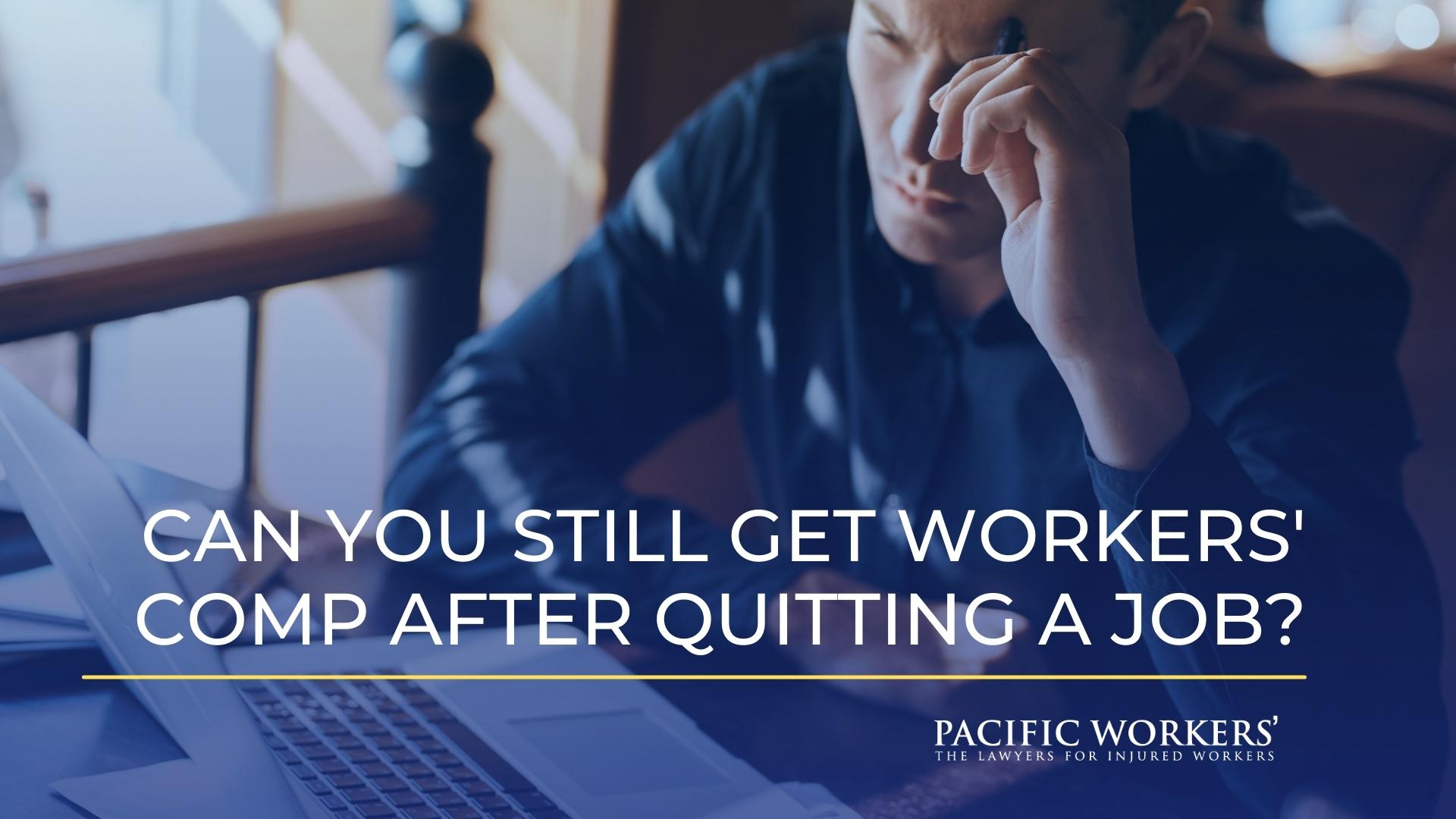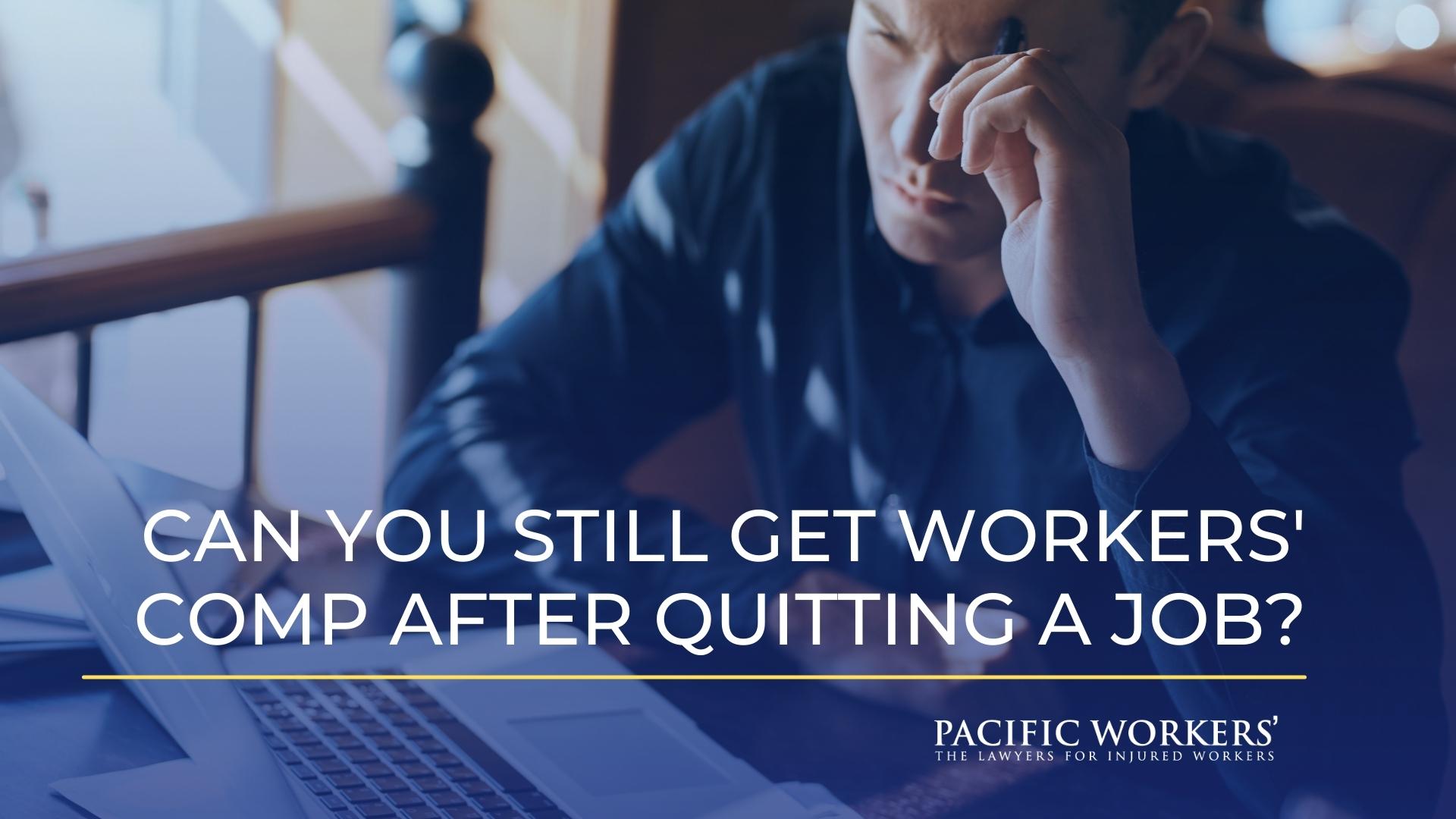
Injured workers often feel as though their lives have been put on hold. You can’t return to your area of employment while undergoing therapy for your injuries. However, what if you no longer want to work with that company? Will you lose benefits if you quit your job while on workers' compensation?
Workers' compensation claims can become difficult based on the nature of the injury, your recovery prospects, and other variables. A workers' compensation lawyer can assist you in obtaining all the legal advantages available to you.
Can You Still Get Workers' Comp if You Quit Your Job?
The good news is that workers' compensation claims are dependent on your job status at the time of the incident. Quitting your employment should not prohibit you from receiving workers' compensation payments. If you were working at the time of the work-related injury and are qualified for workers' compensation, you should be able to get payments. Your employer is obligated by law to provide workers' compensation insurance for you for the duration of your employment.
However, as mentioned above, quitting your job doesn’t prohibit getting the benefits but it might make things more difficult.
Your employer can deny that you are got injured since you left your position freely. They don’t have the final say of your benefits, the insurance does. In addition, quitting a job might complicate your eligibility for unemployment benefits and several components of your workers' compensation claim may be altered. We highly recommend consulting with an attorney before you resign or quit your job.
Other Factors to Consider
It is far more difficult to substantiate your claim if you left your employment before filing a workers' compensation claim. When you make a claim, expect to face a lot more scrutiny. While it is true that the validity of your claim is determined by the date of the injury, not when you file, you may have difficulty demonstrating your eligibility for benefits.
Employers and insurance companies are wary of employees who file claims after leaving a job. They perceive this as a method for a former employee to earn a weekly paycheck, even though people who quit their positions willingly are not eligible for unemployment benefits.
To demonstrate that your injury occurred at your former workplace, it’s helpful to get a statement from a coworker or supervisor who observed the accident. Your employer may have video footage that you may use. If you went to the emergency room after being hurt, you might have medical documents that may be used to verify when the event occurred.
Given all the considerations that go into a worker's compensation claim, it's good to check with a worker's compensation attorney before taking any actions that might jeopardize your claim.
Conclusion
If you are injured on the job and lose your position in the process, you should apply for workers' compensation benefits immediately. It is also essential to consult with a legal professional. If you don't, there might be unforeseen ramifications.
Pacific Workers', The Lawyers for Injured Workers can provide you with exceptional services from our Bay Area workers' compensation attorneys. Whether you are filing your claim or appealing a denied one, we can help you get the compensation you deserve. Call us today at 800-606-6999 for a free consultation!

